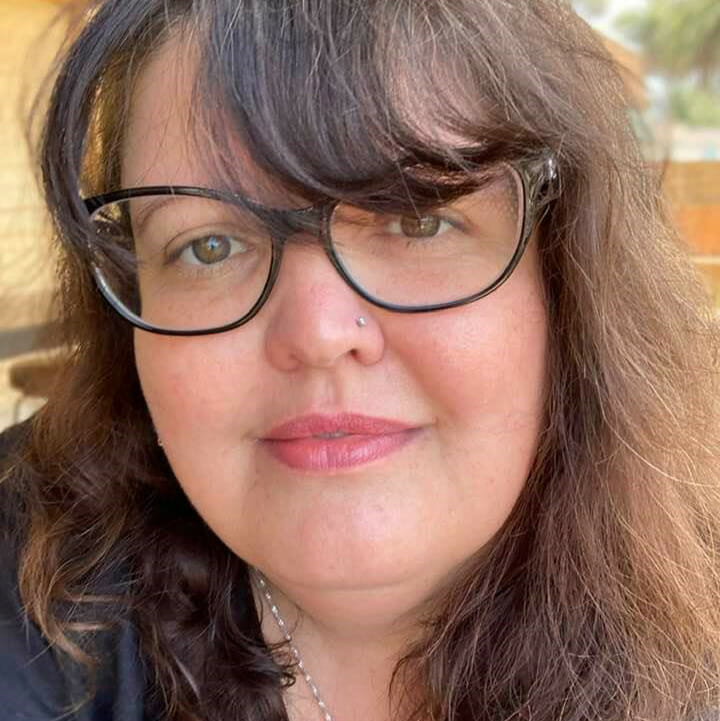
The Swette Center for Sustainable Food Systems focuses on innovative ideas and solutions to the many challenges of current food systems. In this series, we’re sitting down with the Swette Center affiliated faculty to catch up on food systems, innovation, and what makes a good meal. Read the rest of the series here.
Jennifer Keahey
Senior Sustainability Scholar, Global Institute of Sustainability and Innovation; Assistant Professor of Sociology, School of Social and Behavioral Sciences, New College of Interdisciplinary Arts and Sciences
How did you get interested in food systems issues?
I grew up in northern Utah and come from a family from the old American west. I didn’t grow up in a farming family, but my grandmother was a farmer in her childhood. Some of my extended family were also farmers. I took that world for granted when I was growing up in Salt Lake City. I would travel up to the town where my extended family lived and visit the fruit stands practically every weekend during the summer.
It all coalesced for me when I was a Peace Corps volunteer in Latvia. I went there to be an English teacher/trainer. I traveled around the whole country for three years and worked with English teachers who were often farmers themselves. From conversations with them, I became very fascinated with the organic farming movement in Latvia. That is when I realized that this way of life shouldn’t be taken for granted.
Share a glimpse of your current research/work and how it applies to food systems transformation.
I am currently working on a book called Decolonizing Sustainable Development. I’m centering food systems in my book in an innovative way. The critical food systems literature is somewhat detached from the broader discourse on sustainable development, so I am bringing those two worlds together. I’m using a decolonial framework that centers production and trade in sustainability studies. The book is a comparative historical study of alternative food systems in Latvia and South Africa. Not only did I spend my Peace Corps years there, but I also went back to research their organic farming movement and how that fared during European Union accession when they were joining the EU in the mid-2000’s. I also did doctoral research in South Africa looking at fair trade specifically within the rooibos tea sector. Rooibos tea is officially designated terroir; it has a geographic indication status similar to champagne in France. You cannot use the word “rooibos” if it is not produced in South Africa.
I’m taking these two case studies in North-Eastern Europe and Southern Africa where both of these societies historically were colonized by foreign powers and got their independence around the same time in the early 1990’s. Both of their political structures experienced a major shift. I’m looking at how farmers took advantage of that time and the new challenges that have arisen due to integration into the regional and global economies. I’m also thinking about implications for sustainability in terms of creating sustainable production in trade systems. It’s not just about growing food sustainably, but also about dealing with a global market that does not allow farmers to grow food sustainably. I’m examining political economy in tandem with culture and heritage to construct a study that provides both breadth and depth of awareness. In terms of culture and heritage, I am looking at how indigenous knowledge systems in both of these countries are informing resistance to global corporate agriculture. I’m using the case of Latvia and South Africa to determine the role of cultural values in developing sustainable food systems.
What’s an innovation in the food systems world that you’re excited about?
I shifted from studying organic agriculture to fair trade because I got very excited about fair trade as an alternative model for organizing that works within and against the global market economy. I became fascinated with fair trade because it is very bridge building. Within the fair trade movement you have people who want an end to capitalism and want to build a socialist system of trade that is cooperatively regulated by third parties. This system would be more focused on ensuring fair prices instead of solely focused on making profit. On the other hand, you have people in the fair trade movement that are neo-liberal and came in because the activists have been very savvy about making market logic work against markets. Traditional market logic is buying food as cheaply as possible in as much quantity as possible. We’ve shifted from a system that was producer-driven to a system that is buyer-driven where the buyers are powerful multinational supermarkets. They define quality in terms of quantity and pricing, but fair trade redefines quality in terms of civic and domestic conventions like guaranteed fair trade minimum pricing, sustainable production practices, and giving farmers a premium on top of the price of the product. That premium allows cooperatives to invest in things like organic certification or training. This against/within system is something I find exciting because in my view, you need to have both the centristic and radical elements of sustainable food movements. Otherwise, we aren’t going to see change.
I like this two-pronged approach that welcomes actors in the existing system who see this as an economic opportunity, but refuses to be fully co-opted by that market logic and continues to resist.
What’s your go-to weeknight meal?
My go-to weeknight meal is something simple like a big glass of raw kefir, toast with almond butter, and some fruit.